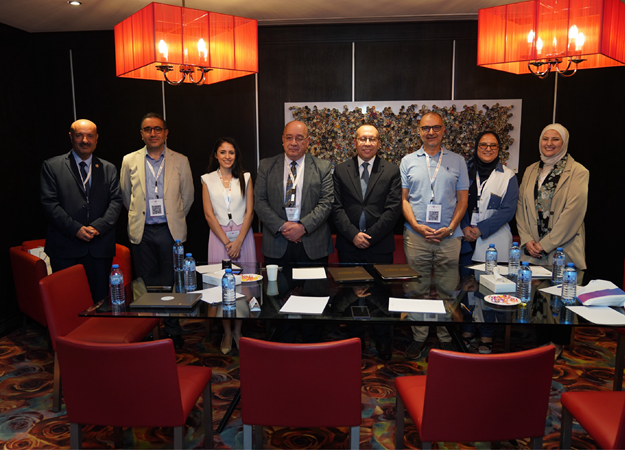IAPH and Mundiapolis University Partner to Launch Executive Master's in Public Health Emergency Management

In a strategic move to address global health security and bolster emergency preparedness, IAPH has signed a partnership agreement with Mundiapolis University to introduce an Executive Master's degree in Public Health Emergency Management. This collaboration, the first of its kind, aims to equip professionals with the advanced skills and knowledge necessary to manage public health crises effectively.
The bilateral cooperation agreement was officially signed during the Eighth EMPHNET Regional Conference by Dr. Mohammad Al-Tarawneh, Executive Director of IAPH, and Prof. Abdelmounim Belalia, Director General of Mundiapolis University.
Dr. Mohammad Al-Tarawneh highlighted the significance of this partnership, saying, “This collaboration represents a new chapter in addressing the global need for expertise in emergency preparedness and response. By combining our strengths, we are creating an academic program that will not only enhance public health education but also equip the next generation of professionals with the tools to protect communities in times of crisis.
Prof. Belalia echoed this sentiment, stating, "At Mundiapolis University, we are committed to fostering innovation and excellence in higher education. Our partnership with IAPH will create opportunities for professionals across the region to gain specialized training in managing public health crises, an area that is becoming increasingly critical in today's world.
The Executive Master’s program is set to begin on November 1, 2024, and is designed for public health professionals, healthcare workers, and individuals aiming to broaden their expertise and qualify for leadership roles in national or regional health services and systems. With a curriculum emphasizing practical, real-world applications, the program covers key areas such as basics of public health emergency management, public health risk management, and management of primary health care services during emergencies.
Both institutions are dedicated to supporting professionals who are on the frontlines of public health, ensuring they are prepared to tackle the complexities of public health emergencies and strengthen resilience in their communities.
The partnership also includes the exchange of expertise among academic and teaching staff as well as researchers and supports student exchange and internship programs. Joint organization and participation in seminars, symposia, academic meetings, and technical assistance are also important aspects of this partnership. This collaboration exemplifies the shared vision of both institutions to lead innovation in public health education and response efforts.